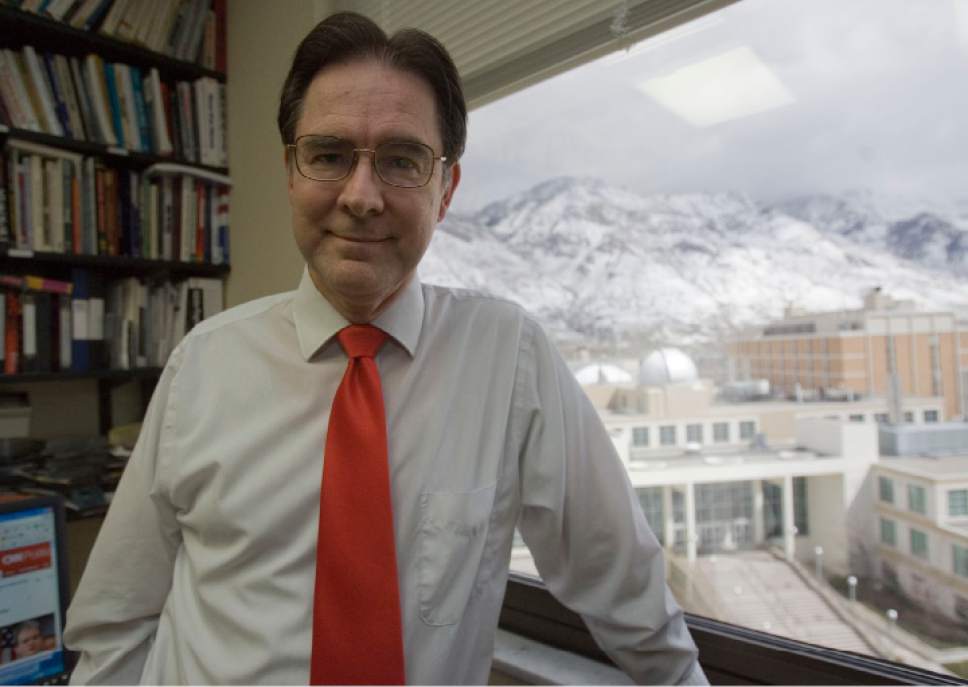This is an archived article that was published on sltrib.com in 2017, and information in the article may be outdated. It is provided only for personal research purposes and may not be reprinted.
According to state election officials, the solution to the Utah County Clerk's mistake in sending ballots for the 3rd District Republican primary to 60,000 unaffiliated voters is to invite those unaffiliated voters to skip the mail ballot option, go to the polls on primary election day to register as Republicans and vote. Otherwise, their votes will not be counted.
That means the county clerk must sort through potentially thousands of ballots of the unaffiliated voters who voted by mail in the August 15 primary and throw out their votes in the 3rd District congressional primary. That is a colossal waste of officials' time and the taxpayers' money. And, it insults all the voters who, in good conscience, thought their votes would count.
There is another solution, however. The Republicans could open their primaries to all voters. That way the voters' choices would matter and the clerk's office would not have to sort through those ballots.
This fiasco, though, does point out a cold, hard fact of Utah politics: Most voters in Utah are disenfranchised. They cannot vote in the primary elections of the Republican Party, which are open only to the minority of Utah voters who register as Republicans. That is true even though, in most of the state, the Republican Party primary is the de facto election. If, in Utah County alone, there are 60,000 voters (not to mention Democrats and other party affiliates), whose votes are not counted, imagine the hundreds of thousands of voters around the state who are cut out of the process by the Republican Party.
State and local government officials have a simple solution to that problem – register as a Republican. Yet, since when is membership in a party a requirement to participate in a representative democracy? Did I miss that part of the U.S. Constitution (or the Utah Constitution) that required a voter to affiliate with a particular political party in order to participate in the election process?
Again, the better solution is for the Republican Party to open up its Aug. 15 GOP primary to all those unaffiliated voters who, through no fault of their own, received a ballot inviting them to participate in that very primary. That way these voters could help determine who their member of Congress will be. That would be a true representative democracy – one where all the voters can play a part in choosing representatives.
Will the Republican Party do that? I am not holding my breath.
However, there is a new party that does believe in open primary elections. It is the United Utah Party. Our party does not require a voter to belong to a particular party. Our primaries are truly open.
We call on the Republican Party to follow our lead and open its primary elections to all voters. Even more than that, we urge them to stop using their conventions as a tool for excluding voters. The Republicans (and the Democrats) require a candidate to gain at least 40 percent of the convention delegate vote to force a primary.
That means primary elections are not frequent. For example, out of the nine statewide and federal offices up for election in 2016, between the Republicans and Democrats there could have been as many as 18 primary elections. Instead, there were only two. That occurred even with Count My Vote, which was supposed to force convention favorites into primaries.
Both parties effectively denied voters the opportunity to vote on who became the party's nominees. And they have been doing that since they raised the threshold for primary elections more than 20 years ago. No wonder voters have become increasingly disenchanted with the two major parties.
The United Utah Party's threshold is 20 percent, not 40, for a candidate to force a primary. That will mean more frequent primary elections. We believe all voters should get a say. We want voters to become re-engaged in the political process. We want to restore our representative democratic system.
It is time for the Republican Party to end its exclusivity and allow all Utah voters to participate in the process of selecting who becomes the party's nominees. But if they won't, voters should take a look at a more inclusive party – United Utah.
Richard Davis is chair of the newly formed United Utah Party.



